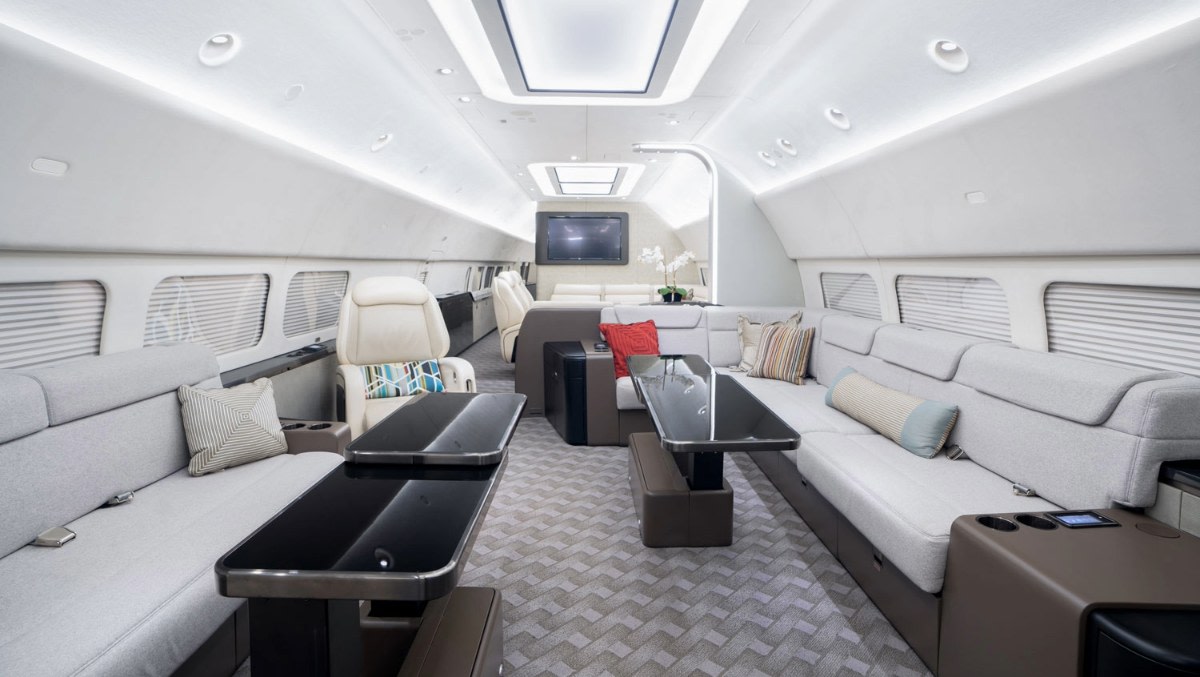
The federal government appears to have confirmed that the RAAF will replace its ageing 737-700 VIP aircraft with two new MAX 8s.
It comes after The Australian revealed taxpayers will pay $450m for the two new Boeing Business Jets (BBJ) because the cost of leasing replacements for 12 years rose from $372m to $550m, making an outright purchase more affordable.
According to the report, the narrowbodies used to fly government ministers and the Governor-General could arrive as soon as July despite Boeing’s delivery issues.
BBJs are specially modified versions of Boeing’s traditional commercial aircraft, designed to accommodate VIPs.
“The Albanese government is committed to ensuring Defence acquisitions represent best value for money,” a government spokesperson said.
The RAAF currently has access to three leased Dassault Falcon 7X business jets that can carry 14 passengers and 12 KA350 King Airs that only seat up to eight.
Meanwhile, the two existing Boeing 737-700 BBJs – A36-001 and A36-002 – can carry up to 30 people but are now over 23 years old each.
The aircraft are operated out of Canberra’s RAAF Fairbairn base by the Air Force’s 34 Squadron.
After Bonza’s demise, Virgin Australia is currently the only Australian airline to operate the 737 MAX family, having received its fourth MAX 8 in March.
Virgin’s order of 31 new 737 MAX aircraft, including six MAX 8s and all 25 of its MAX 10s, has been delayed by Boeing’s ongoing troubles, including the now infamous incident in which a door plug blew out on an Alaska Airlines plane at the start of the year.
This led to the planemaker recording a US$355 million net loss in the March quarter after the FAA barred it from ramping up MAX production.
Boeing’s revenue was $16.6 billion, down eight per cent from the first quarter of 2023, and operating cash flow was $3.4 billion in the red. The losses are being driven largely by the Commercial Airplanes division, with Defence, Space and Security, as well as Global Services, both in the black.
In an earnings call with investors, Boeing CEO Dave Calhoun, who is set to step down by the end of the year, said the company has taken “dramatic action” to lift its quality standards following the incident, which left Boeing facing a criminal investigation.
“We immediately and transparently began supporting the NTSB to identify the cause of the accident. We supported the FAA investigation of the 737-9 fleet in its entirety to do comprehensive airline inspections and the aircraft were cleared to go back into service,” he said.
“We immediately acted working alongside our supply chain to ensure the door plug depressurization event doesn’t ever happen again.
“We held Quality Stand Downs across all of our production lines in BCA, and sought the advice and counsel of more than 70,000 employees to improve our factory disciplines and adherence to our quality standards. All in all, we collected over 30,000 ideas and the list continues to grow.
“We transparently engaged with the FAA and immediately went to work on a 90-day plan of quality action to drive improvements throughout our production system. We completed our 30-day review and we’re regularly checking in with the FAA as we complete our 90-day plan.”
Calhoun added that the company has brought in “independent quality experts” to review its quality control process, who are now 60 days into their work, starting with Boeing’s Renton factory and contractor Spirit AeroSystems. Boeing expects the review to take several years.
“We are absolutely committed to doing everything that we can to make certain our regulators, our customers, and most importantly, our employees and the flying public are 100% confident in Boeing,” said Calhoun.
“While I have shared my plans to step down as CEO by the end of the year, I will be very focused every day on seeing that commitment through.”
- SEO Powered Content & PR Distribution. Get Amplified Today.
- PlatoData.Network Vertical Generative Ai. Empower Yourself. Access Here.
- PlatoAiStream. Web3 Intelligence. Knowledge Amplified. Access Here.
- PlatoESG. Carbon, CleanTech, Energy, Environment, Solar, Waste Management. Access Here.
- PlatoHealth. Biotech and Clinical Trials Intelligence. Access Here.
- Source: https://australianaviation.com.au/2024/05/raaf-to-swap-ageing-vip-737s-with-two-max-8s/



